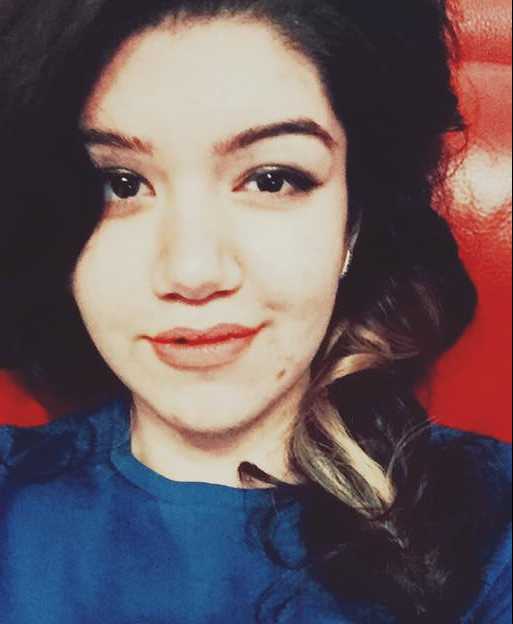An author at twenty! Know more about Simran Keshwani’s journey here
It’s amazing to see talent blooming at such an early age and Simran Keshwani is one such multi talented girl. The 20 year old, final year literature student at the Lady Shri Ram College for Women, University of Delhi and the Founder of a start-up, Born Of a Million Thoughts, that deals in on-ground social activism has now turned into an author.

Simran’s first novel ‘Becoming Assiya ‘ is set in the backdrop of wartime Syria. It is the story of a misplaced Syrian refugee and her trial with a past of Blood, wounds, war, hatred and the troublesome hope of a better tomorrow. According to her it’s a small attempt to capture Syria’s moment of crumble and a look into the dystopian future we signed up for, where bullets replace lives.
Read on to know more about Simran Keshwani and her first novel which is all set to hit the stands this March!
What made you start writing at such an early age?
I always had an inexplicable love for pen and paper. During times of distress, they were my best friends. I guess I haven’t known any love truer than writing.
How did you begin writing? Did you intend to become an author?
I don’t remember how it began or where the inspiration came from. But, when I were very young, I remember seeing my great grandmother’s diary, full of Urdu memoirs about the horrific Partition days. That was the first treasure I knew. That was my access to the world of pen & paper. I intended to write. Being an author involved a lot of experience and nuanced understanding, I would still call myself a writer, a learner.
Why not a chic-lit ? Do you have a specific reason for writing such a book?
This is one thing I haven’t been able to grasp, ever. How we label books into neat categories. I think that’s a constricting view. Genres flow into each other all the time, and what’s normal to the spider is chaos to the fly. Perhaps, Becoming Assiya will be read as Chick lit! Who knows!
Hows real is writer’s block?
Tremendously real. I think writers are terrific at hiding their crevices. Sometimes, we sit at the laptop with a blank mind and the ideas just come rushing.. other days, we could sit at it for hours, and produce a cacophony. Writing is a strange and engrossing process.

Tell something about the book ?
Becoming Assiya is the journey of a Syrian refugee through time and through war, making way for peace in a land of blood. I have tried my best to intertwine the depth and intensity of Bloodshed with the Pain of liberation. We cry for freedom, but we often forget, liberation hurts.
How important is social media for an author?
Extremely important. To hone your image and to broadcast your views has never been more important than now.
Any favourite watpad author?
My stint with Wattpad was very brief. When I had my first BlackBerry phone and my first boyfriend, I read this book called How a Good Girl Became Bad by an anonymous author. I think I was bad thereafter.
What’s the hardest thing about writing a book ?
Consistency of plot. You get so lost within the entrapping of emotions in the story, you forget it has to be in accordance with a space time nexus. Linearity of thought was a challenging task for me, I preferred dealing with a Million Thoughts at once.
What do you think is more important: characters or plot?
Both. Unequivocally.

If you could tell your younger writing self anything, what would it be?
Accept Yourself. Forgive yourself.
What authors did you dislike at first but later grew into?
Amitav Ghosh. Thank you for asking me this. I think it was first year, when we were reading Shadow Lines by him. That was my introduction to the Stream of Consciousness. It is a writing style wherein you don’t dwell on linear plots. Like memory, consciousness can be rebuilt in parts, and blurred parts. The narrative influenced me unimaginably, and I adopted his writing style soon after.
What book have had a strong influence on you or your writing?
My Son’s Story by Nadine Gordimer. It taught me Sermons were Stones, and that the Word was a dangerous feisty weapon.
Any writing rituals?
Heartbreak, if that doesn’t sound too cliche. I’ve noticed I’m at my creative best when I’m in the middle of ongoing personal tragedies.
What do you like to do when you’re not writing?
To Sleep. I prefer shutting down when I’m not writing.
What was one of the most surprising things you learned while writing your book?
That inside, we’re all really insecure of our position in the world. We are subject to fear. We can not accept the Unknown simply because it is different than we are. And to counter that, we are All Human. You see the irony?
Any last thoughts for our readers?
Keep writing!














